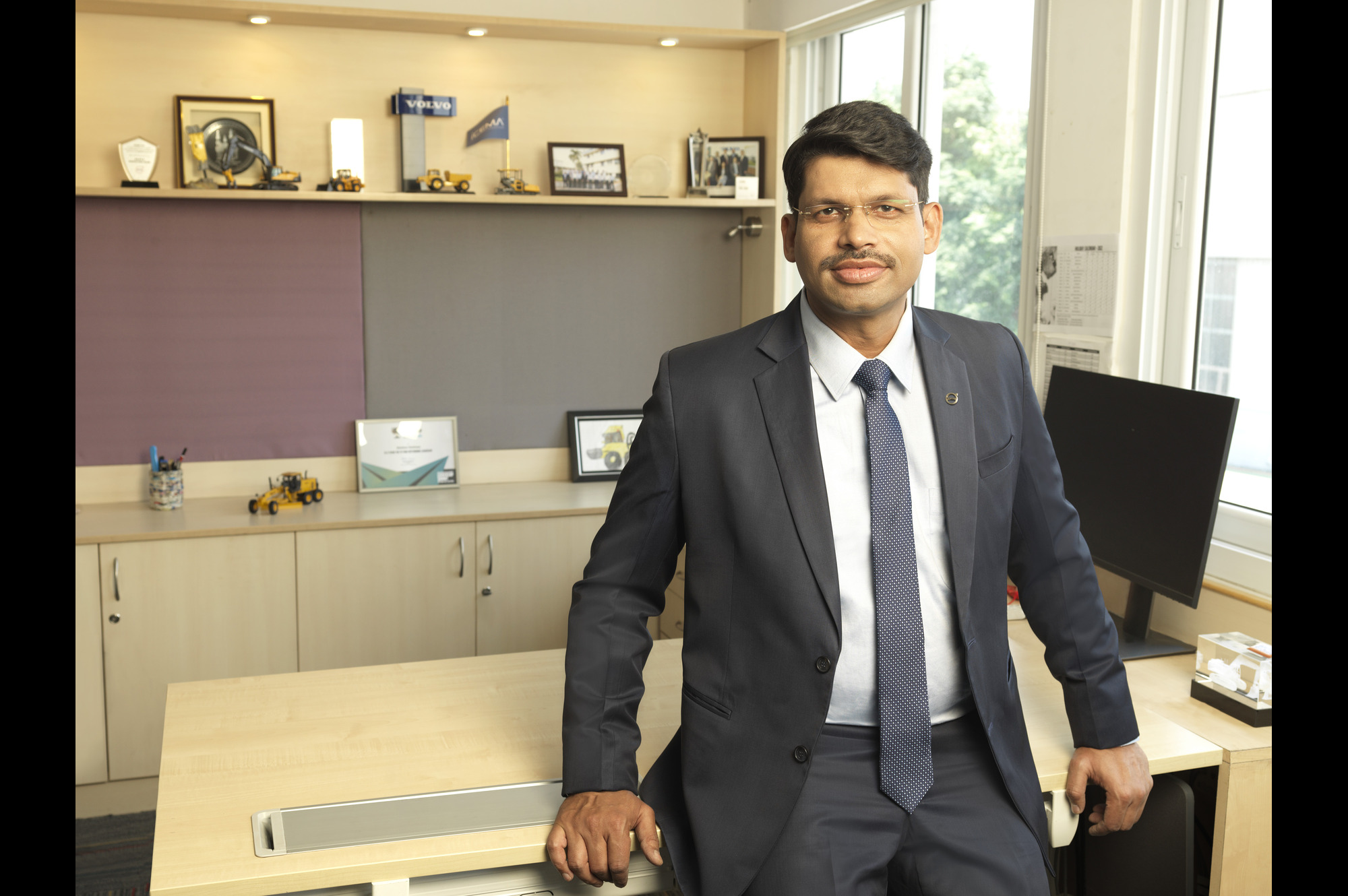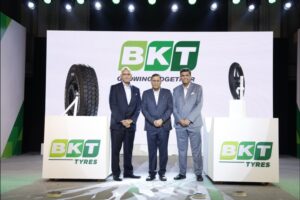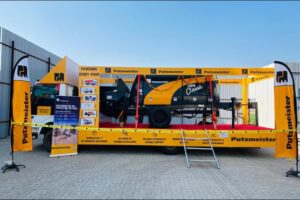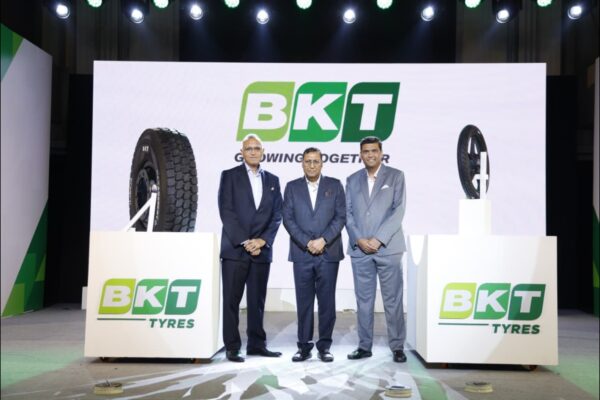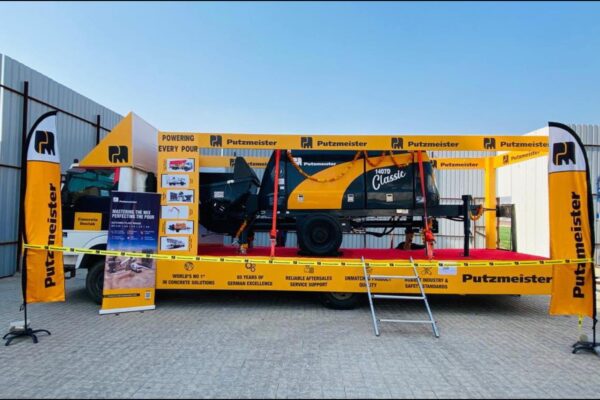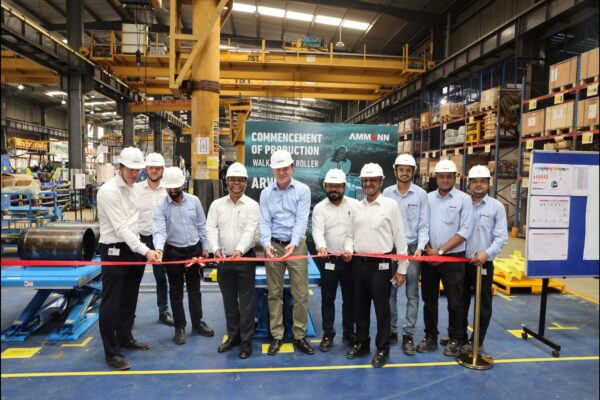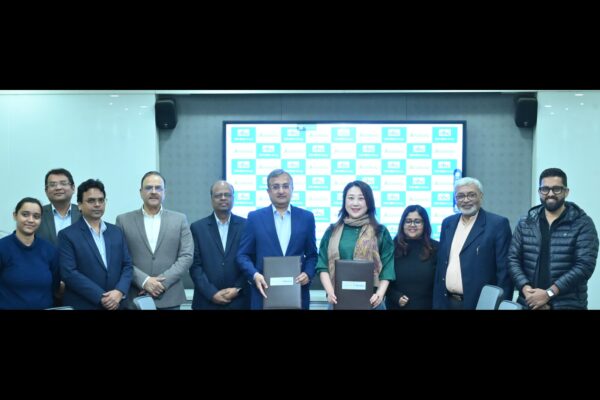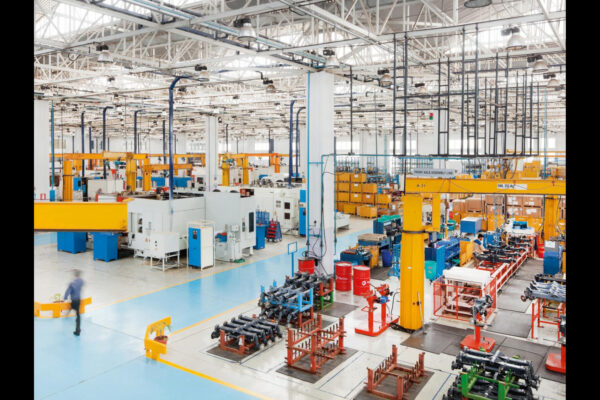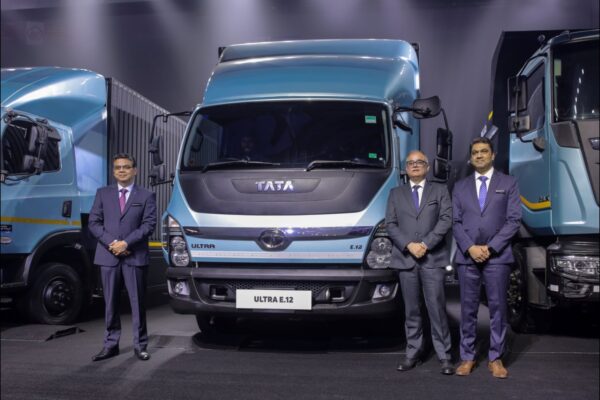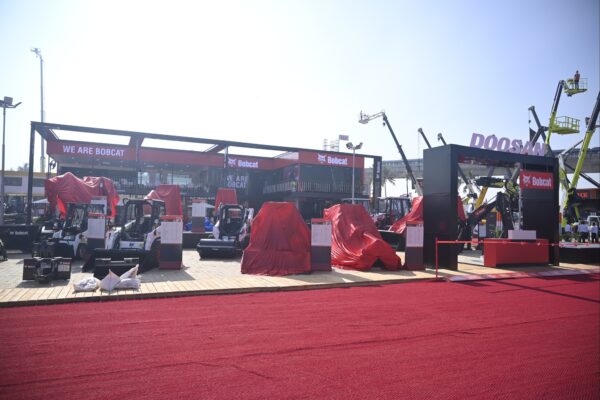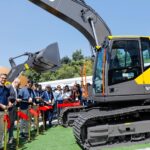Interview: Dimitrov Krishnan, Managing Director, Volvo CE India
In an interaction with EPC World, Dimitrov Krishnan, Managing Director of Volvo CE India, shares insights on the construction equipment industry, government infrastructure initiatives, and how Volvo CE is leveraging technology, sustainability, and customer-centric solutions to shape the Indian market
ICRA has projected muted YoY growth of 2–5% for the Indian mining and construction equipment industry in FY2026. How do you view this outlook, particularly for road construction equipment?
This growth rate projection for FY2026 reflects the reality of a high base effect – after several years of strong expansion, a period of moderation is natural. Nevertheless, road construction equipment is strong. In road construction, much of the national highway network has already seen accelerated development, so we expect the pace of new greenfield highway awards to stabilize. However, we continue to see strong demand for widening, upgradation, and state-level projects, which will sustain the requirement for road machinery like compactors and mid-sized excavators. Mining and quarrying are also gaining momentum, driven by coal, aggregates, and cement demand, which supports larger equipment. While FY26 may appear muted in growth terms, the long-term trajectory for infrastructure investment remains robust, and the industry is well-positioned to benefit from sustained government focus and emerging opportunities in urban and rural connectivity.
On a positive note, the government aims to accelerate highway construction from 38 km/day to 100 km/day. Do you believe this target can offset the muted growth outlook, and what would it mean for road construction equipment demand?
The objective of 100 km/day is faith ambitious, and the challenges of the execution in terms of land purchases, funding, and contractors’ capacity cannot be underrated. Yet any partial movement towards that goal would be revolutionary. To road construction machinery, the result is high levels of utilization and demand continuity. Mid-size excavators such as our EC210, which have already been tested on road projects and precision compactors such as the DD40 and PT220 will form the heart of the solution to accelerated high-quality road construction. Effectively, the ambitions of government highways can substantially revise a dampened growth forecast by guaranteeing a steady stream of project volumes to both the contractors and the OEMs.
How is your organisation positioning itself to leverage this ambitious target in terms of product offerings, technology, and market strategy?
Our approach is based on three pillars, localized manufacturing, technology integration and service reach. The EC210 hydraulic excavator, which has been localized to over 70 percent in Bengaluru is becoming the preferred choice of the contractors in road works because of its fuel efficiency and durability. The SD110, DD40 and PT220 provide the accuracy required in highway specifications in compaction. On technology, we are increasing the implementation of CareTrack telematics providing customers with real-time access to utilization, fuel burn, preventive maintenance, and care. More importantly, we also have over 20 dealer partners and good number of service touchpoints in India, including Tier II and Tier III towns, so help is available wherever highways are being constructed. This holistic strategy enables us to be well in tune with the road construction agenda of India.
What key technology and sustainability innovations has your company introduced in the past two years to meet the rising demand for advanced road construction equipment?
In the past two years, we have focused our progress on increased fuel efficiency, electrification and digitalization. We introduced EC500 Grid-Connected Electric Excavator, the first 50-tonne electric machine in India, prototypes of electric compactors, and electric loaders at Excon 2023 pioneering this shift in India. These products eradicate tailpipe emissions and reduce significantly noise and dust- greatly applicable to urban and environmentally- sensitive projects. At the digital front, devices such as Volvo Co-Pilot and CareTrack offer in-cab directions and real-time tracking of the compaction levels, payloads, and ecofriendly driving methods. A combination of these technologies assists customers to save money, enhance quality and to satisfy the ever-growing sustainability demands in road construction.
How are government policies, especially Bharat Stage emission norms, shaping road construction equipment in India, and what more should be done to propel the sector’s growth?
Technology upgrades have been an apparent policy-driven activity. Adoption of Bharat Stage V emission standards of construction equipment vehicles will be able to provide significant effects of fuel efficiency and emission making it closer to international standards. To the players in the industry, a clear timeline will be necessary to plan investments. In addition to emission standards, specific incentives on electric and hybrid machines, more friendly financing options on the modern machines and faster environmental and project clearances would act as the right push. Such measures would enable the industry to grow in a sustainable manner as it would facilitate the infrastructural ambitions of India.
There is a growing paucity of skilled operators in the industry. How is your organisation addressing this challenge?
The shortage of skilled operators is one of the most pressing challenges for our industry, as machine productivity and safety are closely tied to operator capability. We are addressing this through structured Operator Training Programs, simulator-led modules, and initiatives like the Iron Women Program, which is bringing more women into the operator workforce. We are also actively collaborating with the Infrastructure Equipment Skill Council (IESC), ITIs, and government-led skilling platforms to expand the talent pool. These partnerships help create certified, industry-ready operators who can confidently handle advanced technologies. By combining education, inclusivity, and continuous skilling, Volvo CE is not just bridging today’s gap but also building a sustainable, future-ready workforce for India’s infrastructure journey.
Financial schemes often play a key role in boosting product sales. Could you elaborate on the rental and financing options your company offers, and your tie-ups with financial institutions?
Financing and rental solutions are key enablers for equipment adoption in India. Through Volvo Financial Services (VFS), we work with banks and NBFCs to offer flexible loans, leases, and seasonal schemes that ease customer cash flow. We see growing potential in the Equipment-as-a-Service (EaaS) model, where customers pay for usage or output rather than ownership. This is particularly relevant for fleet owners who want to scale quickly and efficiently. Together, these financing pathways ensure that every customer—large or small—can access Volvo’s reliability, productivity, and sustainable solutions.
How do you view the role of after-sales services in driving brand growth, and what specific after-sales support does your company provide to customers?
After-sales service is at the heart of our brand promise because in this industry, customers don’t just buy a machine—they buy reliability, uptime, and peace of mind. We have built a strong ecosystem of genuine parts availability, service agreements, and trained service engineers to maximize machine productivity. Our CareTrack telematics gives customers real-time insights into machine health, fuel consumption, and predictive maintenance. We also offer extended warranties, annual maintenance contracts, and on-site service support, ensuring higher uptime and lower total cost of ownership. Importantly, our operator and technician training programs enhance machine efficiency and safety on the ground. By combining advanced technology with responsive service, we strengthen customer trust and build long-term relationships that drive brand growth. We have a large network of dealers pan India supported by Uptime Centers and trained service teams that help us to respond fast even in remote corridors. It is this ecosystem of proactive support that allows our customers to deliver the deadlines with great confidence and makes the after-sales service one of the core pillars of our growth strategy.
What opportunities and challenges does your company foresee in the Indian road construction equipment industry over the next 3–5 years, and how will technologies like automation, AI, IoT, and driverless systems shape your strategy?
The Indian road construction equipment industry holds significant opportunity in the next 3–5 years, driven by continued government focus on connectivity, highway expansion, and rural infrastructure. The challenge, however, will be balancing the cyclical nature of demand, regional variations in project activity, and the industry’s transition towards sustainable practices. We see technology as the key enabler of the next growth phase. IoT and telematics are already improving machine monitoring, efficiency, and predictive maintenance. Automation and AI will enhance safety, reduce operator dependency, and enable data-driven decision-making on sites. For us, the focus will be to combine world-class machines with connected, intelligent solutions that help India build faster, safer, and greener roads.
Tags

